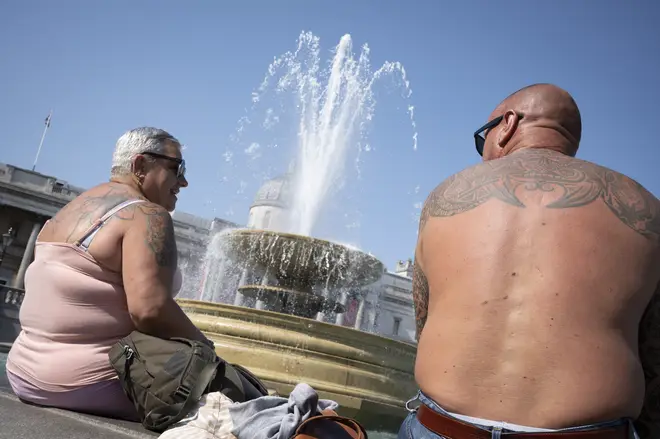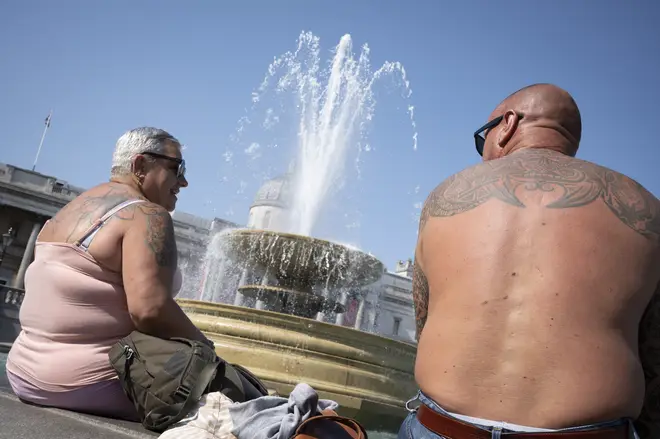
James O'Brien 10am - 1pm
7 October 2022, 15:25

There were over 3,000 more deaths than usual in England and Wales as the countries endured a series of heatwaves in the summer that saw temperatures of over 40C.
Most deaths were people over 65, with many occurring during the hottest days towards the end of July, according to a report from the Office for National Statistics (ONS) and the UK Health Security Agency (UKHSA).
Experts say the data points to just how dangerous hot weather can be:
"These estimates show clearly that high temperatures can lead to premature death for those who are vulnerable," said Isabel Oliver, chief scientific officer at the UKHSA.
"A warming climate means we must adapt to living safely with hotter summers in the future."
Between June and August, the UK saw five 'heat-periods' - defined as days when the average temperature is greater than 20°C in central England.
During those periods, there were 3,271 excess deaths - 6.2% above the five-year average - out of a total of 56,303 deaths in England and Wales.

For the first time on record, the UK recorded temperatures of over 40°C between 17 and 20 July.
The report also found more excess deaths in women (2,159) than men (1,115), and each heat-period was followed by a fall in deaths below the average. This suggest that deaths among the most vulnerable happened earlier than they would have done.
There were 1,458 excess deaths in over-65s from 8-17 August - the deadliest period of heat.
The analysis of deaths was compiled by the ONS using information from death registrations. The UKHSA also used a statistical model to estimate excess mortality, excluding Covid-19, during heat-periods.
Sarah Caul, head of mortality analysis at the ONS, said: "During the UK summer of record-breaking temperatures, there was an increase in deaths.
"However, these spikes around the hottest days were followed by periods of below average mortality.
"This is likely to be a result of short-term mortality displacement, especially among older age groups, where people died a few days or weeks earlier than expected."
This means the 3,000 extra deaths seen during the hottest days only partially explain the high rates of deaths seen this summer.

In England and Wales, there were about 16,000 more deaths from June to August than might be expected based on previous summers.
The summer of 2022 was the joint hottest summer on record for England, tied with 2018.
The summer was the fourth warmest summer for the UK overall, according to records which go back to 1884.
Read more: Tories wipeout in London as new poll shows every Conservative MP in the capital will lose their seat
Read more: Ex-WWE star and and reality tv show winner Sara Lee dies aged 30
Temperatures in the UK rose above 40C for the first time - with a new record-high temperature of 40.3C being set at Coningsby, Lincolnshire.
Another 33 locations saw temperatures above the UK's previous high temperature of 38.7°C , set in 2019.
New record-high temperatures were also set in Scotland and Wales in July - 34.8C and 37.1C respectively.